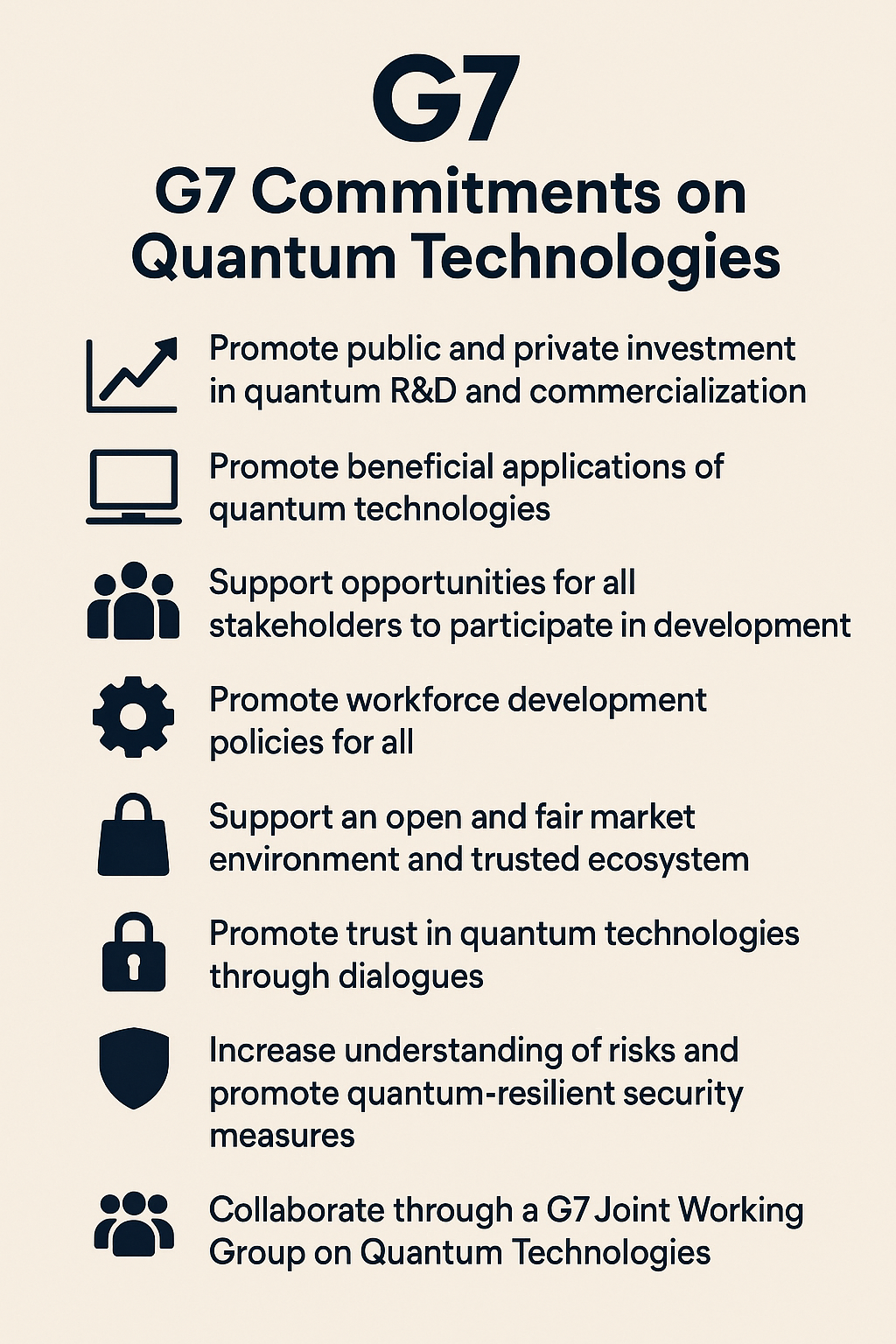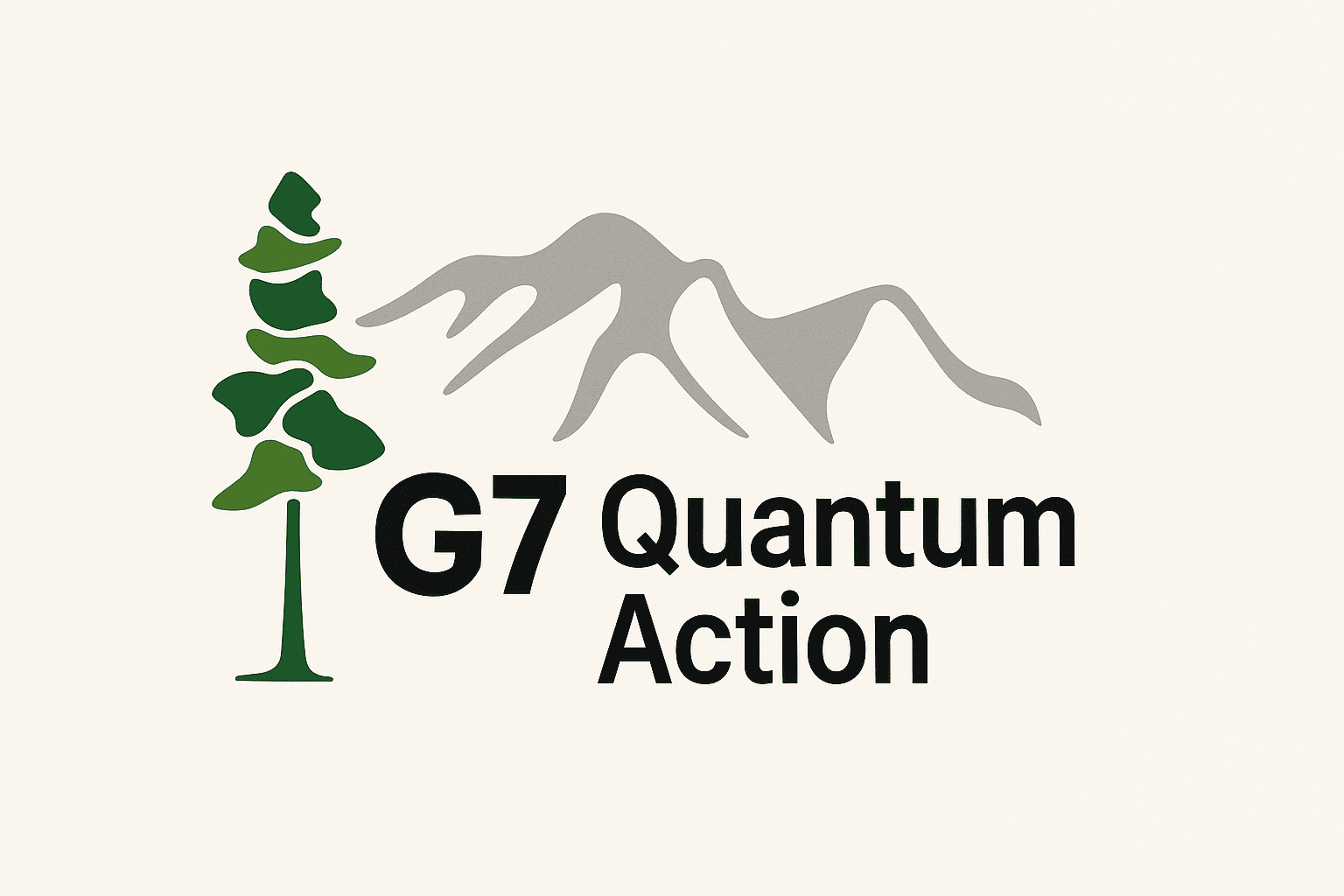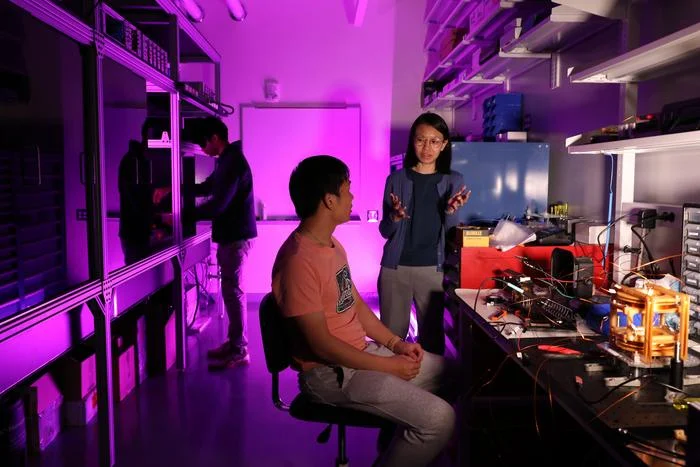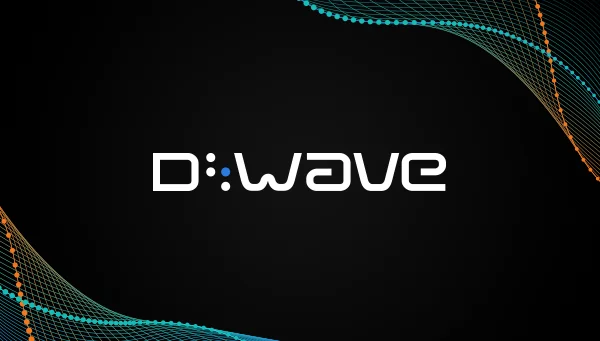Insider Brief
- G7 leaders have issued a joint statement committing to coordinated international efforts to advance quantum technologies across research, commercialization, and security.
- The agreement outlines measures to boost public and private investment, develop a skilled workforce, and promote inclusive participation in quantum development.
- The G7 will form a Joint Working Group on Quantum Technologies to guide cooperation on standards, risk management, and future applications in both civil and defense sectors.
The leaders of the G7 nations pledged coordinated action to shape the future of quantum technologies, identifying them as critical to economic growth, national security, and global innovation. The joint statement, issued June 17 at the 2025 G7 Leaders’ Summit in Kananaskis, Canada, outlines a shared vision to promote research, build trusted international markets, and ensure the ethical development of quantum computing, sensing, and communications.
The announcement signals that quantum technologies — once viewed as long-term scientific pursuits — are increasingly moving into the realm of strategic infrastructure and near-term commercialization. G7 countries are now positioning themselves to lead in a field that could reshape sectors ranging from healthcare and agriculture to finance, logistics, and defense.
The G7 leaders called out the transformative benefits — as well as the considerable threats — of quantum technologies.

“We, the Leaders of the G7, recognize that quantum technologies – which include computing, sensing and communications – have the potential to bring significant and transformative benefits to societies worldwide,” the leaders wrote in their statement. “Significant R&D breakthroughs over the past decade mean that these technologies are now poised to create economic and social benefits in sectors such as finance, communication, transport, energy, health and agriculture while addressing global challenges. They could also have far-reaching implications for national and international security, as they enable new defence capabilities and threaten current data protection systems.”
Academic, Industry and Government Partnership

Overall, the statement backs a commitment to public and private investment in quantum R&D, supporting partnerships between academia, industry and government to accelerate commercialization. The G7 leaders recognized that substantial scientific progress over the last decade has placed quantum systems on the edge of practical utility. By identifying applications in areas such as secure communications and high-precision sensing, the group aims to stimulate new markets while managing emerging risks.
The leaders also agreed to promote inclusion and talent development, especially among women and historically underrepresented communities. Workforce readiness is seen as a key constraint in quantum’s growth. The group endorsed policies such as apprenticeships, STEM education and mentorship programs to ensure the sector’s labor needs are met in both technical and leadership roles.
Another key pillar of the joint vision is a call for stronger protections around sensitive quantum technologies. While endorsing open science and international collaboration, the statement also warns against intellectual property leakage and calls for mechanisms to preserve technology security across national boundaries. This includes the development of trusted ecosystems among like-minded countries, where standards and interoperability can be advanced without compromising national interests.
Cybersecurity Upgrades Needed
In addition to economic and educational measures, the G7 also acknowledged the urgent need to upgrade cybersecurity in anticipation of future quantum threats. Many of today’s encryption systems could be vulnerable to quantum-enabled decryption, and the G7 leaders pledged to promote the development and adoption of quantum-resilient security solutions. These may include post-quantum cryptography or quantum key distribution, both of which are being tested in early-stage deployments.
The joint declaration does not propose binding regulation, instead favoring international dialogues grounded in scientific evidence and democratic values. Given the technology’s early stage, leaders judged that a global regulatory framework would be premature, though they encouraged cooperation through policy dialogue, standards-setting, and voluntary joint projects.
To guide this cooperation, the G7 will establish a Joint Working Group on Quantum Technologies. The group will bring together government agencies, industry stakeholders, and academic experts to coordinate on research priorities, assess economic and defense applications, and exchange best practices. The initiative expands on previous national-level efforts and signals the formation of a multinational platform for strategic quantum coordination.
National Measurement Institutes Collaboration
Technical validation will also be supported by deeper collaboration between national measurement institutes. The leaders singled out the NMI-Q initiative—an international framework for quantum measurement and testing—as a channel to ensure consistency across hardware and protocols.
The G7’s unified position arrives during the International Year of Quantum Science and Technology, a designation meant to raise public awareness and encourage global cooperation in the field. It also reflects a growing geopolitical urgency to shape the rules, standards, and market conditions that will define the future of quantum.
They conclude: “In this International Year of Quantum Science and Technology, we will work together and with like-minded partners to make concrete progress on this agenda.”














